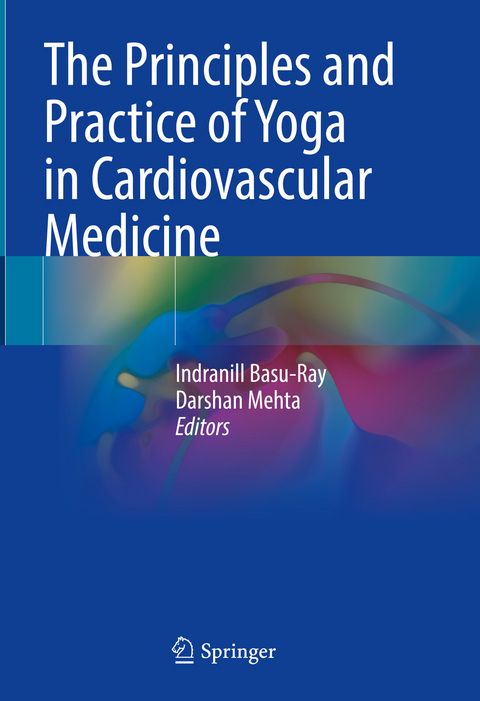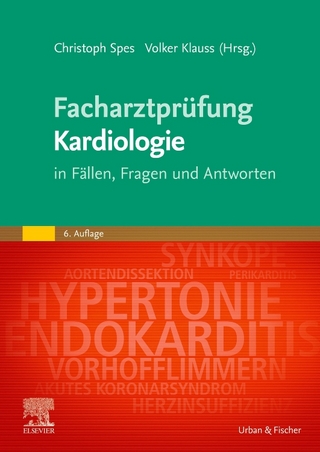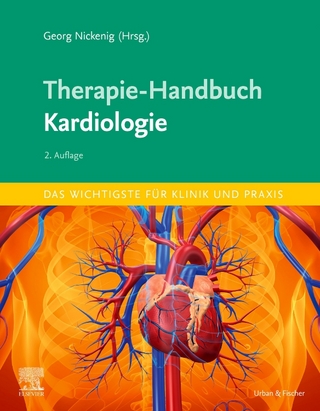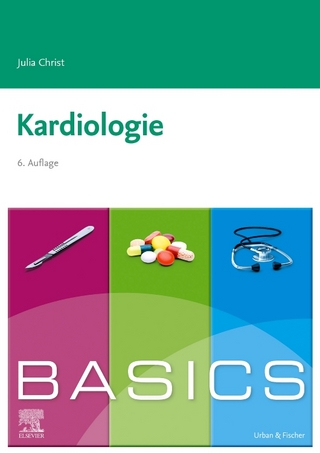
The Principles and Practice of Yoga in Cardiovascular Medicine
Springer Verlag, Singapore
978-981-16-6912-5 (ISBN)
The chapters cover information related to Yoga, both as prevention and therapy, including coronary artery disease, heart failure, and arrhythmias. In addition, important cardiovascular topics like obesity and diabetes mellitus are also included.
A special chapter covers the role of Yoga in the prevention of cardiovascular complications in COVID-19 patients.
Dr. Indranill Basu-Ray, MBBS, MD (Med), DNB (Card), FACP, FACC is a Cardiac Electrophysiologist and a Professor of Cardiology and Public Health, based in Memphis, TN, USA. He is the Founder Chairman of The American Academy of Yoga and Meditation. Dr. Basu-Ray went to medical school at the Nil Ratan Sirkar Medical College in Kolkata, West Bengal India. He has further trained in Cardiology and Interventional Cardiac Electrophysiology from Tulane University in New Orleans, LA, and Texas Heart Institute at the Baylor College of Medicine, Houston, TX. In addition, he trained in Cardiac Electrophysiology Research at the Massachusetts General Hospital, Harvard Medical School in Boston, MA. Dr. Basu Ray is an active researcher in cardiac electrophysiology and yoga and has numerous peer-reviewed research articles. In addition, he has contributed book chapters to multiple books in Cardiology & Medicine. He is the editor of Clinical Cardiology, a book for the medicalcurriculum for subspecialty training in cardiology with over forty authors contributing from worldwide. Dr. Basu-Ray has been a practicing yogi and started meditating at the age of six. He was initiated by Swami Hariharananda Giri, the brother disciple of Paramhansa Yogananda of the "Autobiography of a Yogi" fame. He has been practicing, teaching, and researching yoga and meditation for over three decades now. His research centers on the use of meditation and yoga in cardiovascular diseases. He wrote the American Heart Association's scientific statement on using meditation to treat cardiovascular diseases. He is the founder chairman of the American Academy for Yoga and Meditation (AAYM). AAYM is an organization of physicians, scientists, and researchers who work on scientific validation of Yoga and Meditation and hold regular international conferences worldwide where the latest research is presented. He was the program director of the "World's first conference on the role of Meditation in Cardiovascular Diseases" held at All India Institute of Medical Sciences, Rishikesh, UK, India. He also led the virtual conference- Yoga Conference USA 2021 held virtually with over a hundred speakers and fifty sessions. Dr. Basu-Ray played a pioneering role in developing multiple tools for atrial fibrillation and Ventricular Tachycardia ablation in humans today. He was involved in the initial proof of concept for cryotherapy and the laser balloon used for atrial fibrillation ablation. He contributed to the initial research of a new iteration of 3D mapping systems using multimodality imaging used for intracardiac mapping today. Dr. Basu-Ray performs complex ablations for Atrial Fibrillation and Ventricular Tachycardia. He also treats Heart failure with ICD's, Cardiac Resynchronization Devices and S-ICD's. He also implants Pacemaker and leadless Pacemakers for bradyarrhythmia therapy. Dr. Basu Ray lives with his wife Julie and son Ishan in Memphis, TN, USA. Dr. Darshan Mehta, MD MPH is Medical Director and Director of Medical Education for the Benson-Henry Institute for Mind Body Medicine at Massachusetts General Hospital (BHI-MGH) and Director of Education at the Osher Center for Integrative Medicine, Harvard Medical School and Brigham and Women’s Hospital (OCIM). In addition, he is the MGH site director for the Practice of Medicine curriculum required of all 1st-year Harvard Medical School students, and leads their well-being curriculum. Dr. Mehta received his BA in Biology from Illinois Wesleyan University and an MD from University of Texas-Southwestern Medical School. He completed his residency in internal medicine at University of Illinois-Chicago Hospital. In 2008, he completed a clinical research fellowship in complementary and integrative medicine at the Harvard Medical School Osher Research Center, during which he received a Master of Public Health degree from the Harvard School of Public Health. His educational and research interests include curricular development in complementary and integrative medical therapies, mind/body educational interventions in health professions training, and promotion of professionalism in medical trainees. He directs medical student and resident rotational electives at BHI-MGH and the Osher Center. Dr. Mehta sees patients at both locations in a consultative role for use of complementary and integrative medical therapies, as well as mind/body interventions for stress management and stress reduction. Dr. Mehta is active in the Massachusetts Medical Society and is a member of the American College of Physicians. Dr. Mehta is board-certified through the American Board of Integrative Medicine and has completed professional training in mindfulness-based stress reduction at the University of Massachusetts Medical School. He serves on the leadership for the Academic Consortium for Integrative Medicine and Health and is on the Editorial Board for the Journal of Alternative and Complementary Medicine.
Yoga-A Historical Perspective.- Yoga as Therapy: Ethnomedical Perspective.- Neurophysiology and Neuroanatomy of Meditation.- Effects of Meditation on Psychological, Psychosocial and Physiological Responses to Stress.- Yoga and Autonomic, Vascular and Endothelin Function.- Yoga and Inflammation.- Yoga and Hypertension.- Yoga and Diabetes Mellitus.- Yoga and Obesity.- Yoga and Metabolic Syndrome.- Effects of Yoga on Subclinical Atherosclerosis.- Yoga and Primary Prevention of Cardiovascular Disease.- Yoga and Lifestyle Factors - Diet, Physical activity, Tobacco cessation, Alcohol, and Sleep.- Yoga and Coronary Artery Disease.- Yoga and Heart Failure.- Yoga and Atrial Fibrillation.- Yoga and Implantable Cardioverter: Defibrillator Therapy.- Yoga for Cardiac Surgeries.- Role of Yoga in Cardiovascular Health In HIV Patients.
| Erscheinungsdatum | 06.06.2022 |
|---|---|
| Zusatzinfo | 92 Illustrations, color; 23 Illustrations, black and white; XX, 408 p. 115 illus., 92 illus. in color. |
| Verlagsort | Singapore |
| Sprache | englisch |
| Maße | 178 x 254 mm |
| Themenwelt | Medizinische Fachgebiete ► Innere Medizin ► Kardiologie / Angiologie |
| Schlagworte | Neurophysiology and Neuroanatomy of Meditation • Yoga and Coronary Artery Disease • Yoga and Hypertension • Yoga and Implantable Cardioverter • Yoga for Cardiac Surgeries |
| ISBN-10 | 981-16-6912-0 / 9811669120 |
| ISBN-13 | 978-981-16-6912-5 / 9789811669125 |
| Zustand | Neuware |
| Haben Sie eine Frage zum Produkt? |
aus dem Bereich


